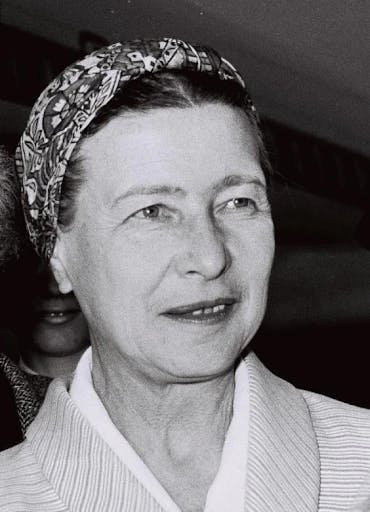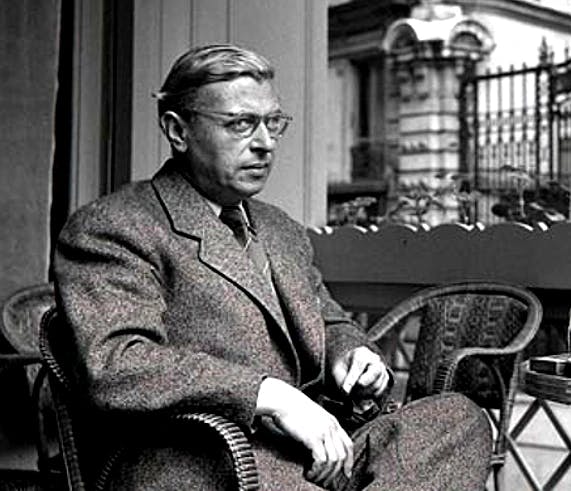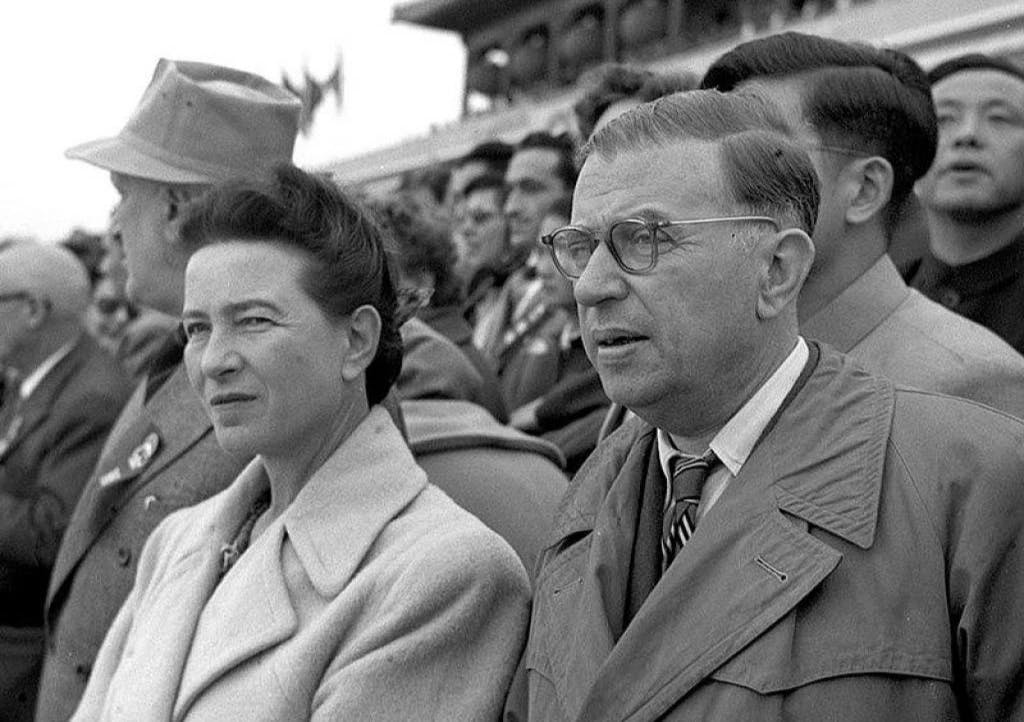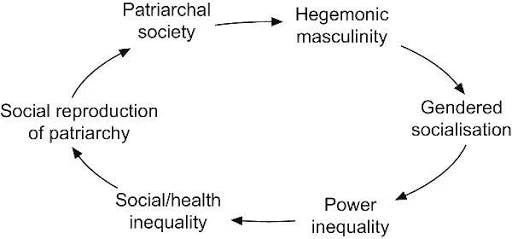Michel Foucault And Other Progressive Intellectual Heroes Were Pedophiles
Michel Foucault's ideas were terrible, and his personal life reflected it.

But Foucault wasn’t the only high-profile, intellectual darling of academia who was guilty of sexual abuse against children. Around him were other influential intellectual figures who shaped the ideas of today’s progressive politics.
Some Background on Michel Foucault
Michel Foucault is perhaps the most popular intellectual in the halls of academia. As the most cited researcher, his thoughts heavily influenced most of the ideas that are taught to our college students today. When we hear that “academia leans highly to the Left,” what this means is that the institutions of higher learning are dominated by thinkers like Foucault.
Recently, a personal friend of Foucault came forth with accusations about how Foucault used to engage in pedophilic sex tourism with young boys in Tunisia. He recalls how Foucault used to bribe desperate young children in poverty with money in exchange for sex at a cemetery.
Foucault used to engage in pedophilic sex tourism with young boys in Tunisia.
As sordid as this accusation was, it’s hard to say it was actually shocking. Those who are familiar with Foucault’s intellectual history would have been aware that Foucault actively endorsed the legitimization of pedophilia. Among the most glaring clues for this was when he led the 1977 petition to lower the legal age of consent for sex with children.
The Flower Children’s Philosopher King
Foucault’s rise to prominence happened during the era of counter-culture in the ‘60s. You may have also heard of this as the era of the sexual revolution. Before the counter-culture revolution, society viewed sex as a sacred act reserved primarily for monogamous marriages. Foucault was an important figure who changed this view.
Foucault and his group of intellectuals were the driving force behind one of the most pivotal student uprisings in France that changed the course of Western culture globally. The movement was known as the May 1968 Student Protest in France.

“It Is Forbidden To Forbid” graffiti during the May 1968 uprising.
It was a time when social taboos were broken on principle, for the main slogan of the 1968 student uprising was “It Is Forbidden To Forbid.” Nothing is out of the question. No behaviors should be deemed too repulsive. No human desire should be deemed taboo. Not even pedophilia.
Numerous other prominent intellectuals supported Foucault’s view that pedophilia should be openly embraced.
If this seems hard to believe, do know that Foucault wasn’t alone in his endorsement of pedophilia. Numerous other prominent intellectuals supported Foucault’s view that pedophilia should be openly embraced by society at large. Here are two examples of famous intellectuals who not only promoted pedophilia, but were also sexually exploiting children themselves.
Simone de Beauvoir

Image Source via Wikimedia Commons
Anyone who is familiar with feminist theory will recognize Simone de Beauvoir instantly. One of the most widely studied feminist thinkers, Simone de Beauvoir’s The Second Sex laid the groundwork for the modern feminist movement. It was de Beauvoir’s work that brought forth the idea of “an oppressor vs. the oppressed.” Her ideas pitted women against men.
Simone de Beauvoir is famous for saying “One is not born, but rather becomes, a woman.” This line of thought is also used to push for the mass acceptance of allowing children to transition into a different gender today.
She groomed underage girls for sex and passed them over to be bedded by her lover Jean-Paul Sartre.
Among her pedophilic enterprise was the grooming of underage girls for sex and later passing them over to be bedded by her long-time lover Jean-Paul Sartre. Using her power and position to procure young girls to be statutorily raped and sharing that experience with her boyfriend? You wouldn’t be wrong to think of her as the Ghislaine Maxwell of academia.
Jean-Paul Sartre

Jean-Paul Sartre, via Wikimedia Commons
If Simone de Beauvoir was yesteryear’s Ghislaine Maxwell, then Jean-Paul Sartre was her Jeffrey Epstein. Sartre and de Beauvoir pursued an open relationship, whereby they shared sexual partners with each other. Usually, these partners were de Beauvoir’s students she seduced and later passed on to Sartre.
Another darling of academia, Sartre also signed the infamous petition to lower the age of consent in France. He was another progressive intellectual figure who hated capitalism and was part of the May 1968 protest.
Sartre also signed the infamous petition to lower the age of consent in France.
Sartre was just as weird as Jeffrey Epstein and just as powerful in the field of philosophy. And like how no one really knows what Jeffrey Epstein did to acquire his wealth, no one really knows what Sartre works really meant either. However, we do know that he hated capitalism and advocated the superiority of Marxism. He was an admirer of Fidel Castro and Che Guevara.

Simeone de Beauvoir and Jean-Paul Sartre in Beijing in 1955, via Wikimedia Commons.
The Core of the Pedophile Philosophy
The question we now have to ask is: “How could a group of grown adults, especially ones who were deemed ‘intellectually superior’ by the elitist circle, get away with the promotion of sexual abuse of children?” The answer can be found within the postmodernist philosophy.
At the root of postmodernism lies the subjectivity of values.
At the root of postmodernism lies the subjectivity of values. Nothing is objectively right or wrong. Human morality is merely a social construct. And since society’s moral standards are merely constructed by the status quo, it’s imperative that we deconstruct social structures. This movement is known as “Poststructuralism” or “Deconstructionist” in academic circles. A real-life version of this that you might have encountered is “Down with systemic racism in America!”
Transgressing Moral Norms
This is how a postmodernist thinks: Since everything is subjective to a person’s experience, feelings, and consciousness, then nothing can be objectively sacred. Childhood innocence, for example, is just a social construct. Since different people have different opinions about “childhood sexuality,” who are we to judge what’s right or wrong?
But worse than just being ambiguous about cultural standards is how the postmodernist-deconstructionist movement is actually promoting the destruction of universally accepted values. They see this as “challenging the hegemony of power.” Because the dominant hegemony of society’s sexual morality lies in “traditional patriarchal values,” these radical intellectuals believe that sexual desires can be utilized as a revolutionary force in politics.
Utilizing Child Sexual Abuse as a Political Tool
Naturally, the promotion of pedophilia is one of the political tools they used to push society into the acceptance of “non-normative sexuality.” When normative sexuality is seen as the outcome of an “oppressive patriarchal hegemony,” then the sanctity of childhood innocence is nothing more than another “social construct” that has to be dismantled.
Childhood innocence is nothing more than another “social construct” that has to be dismantled.
According to an article written by a women’s rights activist with extensive expertise on the subject, the promotion of pedophilia is encouraged because: “Transgression of norms, and in particular sexual norms, became the only response to punishment and classification, which would, in Foucauldian thinking, challenge oppression and power.”
“It Is Forbidden To Forbid”
To better understand why these postmodernist ideas would weaponize the destruction of childhood innocence as a political tool, take a look again at the May 1968 “It Is Forbidden To Forbid” slogan. Participants viewed family, morality, and reproduction as “bourgeois and repressive,” and they believed that unbridled desire could dismantle society and capitalism.
But all of this occurred back in the past. Surely, we no longer subscribe to such terrible ideas in our modern times, right?
Sadly, no. Just like the ideas of Marxism and Socialism are enjoying a surge in today’s younger generation, the ideas of legitimizing sex with children are quietly promoted in the halls of academia. Take, for instance, the case of Judith Butler, another influential feminist thinker. Look up her name and you’ll often find her celebrated in feminist circles.
Heavily influenced by the works of Foucault, Judith Butler also proposed the legitimacy and legality of “intergenerational sex.” The term “intergenerational sex” is basically academic jargon for adults being able to have sex with children. In defense of this proposal, Butler cited Foucault’s work on the subject.

Since the moral standards for sexuality are set by a patriarchal society (hegemonic masculine values), in order to dismantle this standard, social deviance must be encouraged because it promotes the transgression of socially established norms. One proud pedophile defended his “sexual orientation” by citing that “children are only traumatized by being told by authoritative figures that they were sexually abused.”
Closing Thoughts
There were other popular progressive intellectuals who signed the petition to lower the age of consent, such as Jacque Derrida and Jean Francois Lyotard. While there was no evidence that these two philosophers partook in pedophilic inclinations — unlike Foucault, de Beauvoir, and Sartre — it’s still extremely troubling that all these people are the celebrated intellectual heroes of academia.
Cover Image Credit: thierry ehrmann, Flickr.
Love Evie? Let us know what you love and what else you want to see from us in the official Evie reader survey.